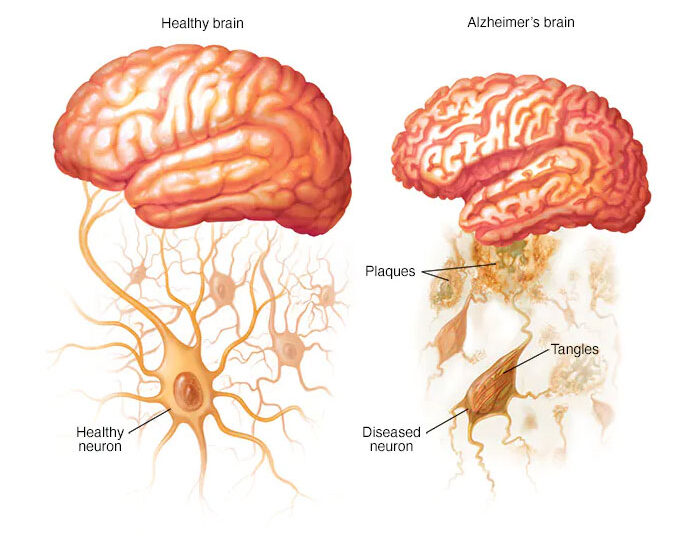John Doe
General SurgeonPretium saepe pariatur ornare cillum repudiandae inceptos iaculis cumque vulputate sequi neque quos exercitation aliquip interdum, veniam? Aute error, elit!


Alzheimer’s disease is a progressive neurologic disorder that causes the brain to shrink (atrophy) and brain cells to die. Alzheimer’s disease is the most common cause of dementia — a continuous decline in thinking, behavioral and social skills that affects a person’s ability to function independently.
Symptoms
Memory loss is the key symptom of Alzheimer’s disease. Early signs include difficulty remembering recent events or conversations. As the disease progresses, memory impairments worsen and other symptoms develop.
At first, a person with Alzheimer’s disease may be aware of having difficulty remembering things and organizing thoughts. A family member or friend may be more likely to notice how the symptoms worsen.
Brain changes associated with Alzheimer’s disease lead to growing trouble with:
Memory
Everyone has occasional memory lapses, but the memory loss associated with Alzheimer’s disease persists and worsens, affecting the ability to function at work or at home.
People with Alzheimer’s may:
Multitasking is especially difficult, and it may be challenging to manage finances, balance checkbooks and pay bills on time. Eventually, a person with Alzheimer’s may be unable to recognize and deal with numbers.
Making judgments and decisions
Alzheimer’s causes a decline in the ability to make reasonable decisions and judgments in everyday situations. For example, a person may make poor or uncharacteristic choices in social interactions or wear clothes that are inappropriate for the weather. It may be more difficult to respond effectively to everyday problems, such as food burning on the stove or unexpected driving situations.
Planning and performing familiar tasks
Once-routine activities that require sequential steps, such as planning and cooking a meal or playing a favorite game, become a struggle as the disease progresses. Eventually, people with advanced Alzheimer’s often forget how to perform basic tasks such as dressing and bathing.
Changes in personality and behavior
Brain changes that occur in Alzheimer’s disease can affect moods and behaviors. Problems may include the following: